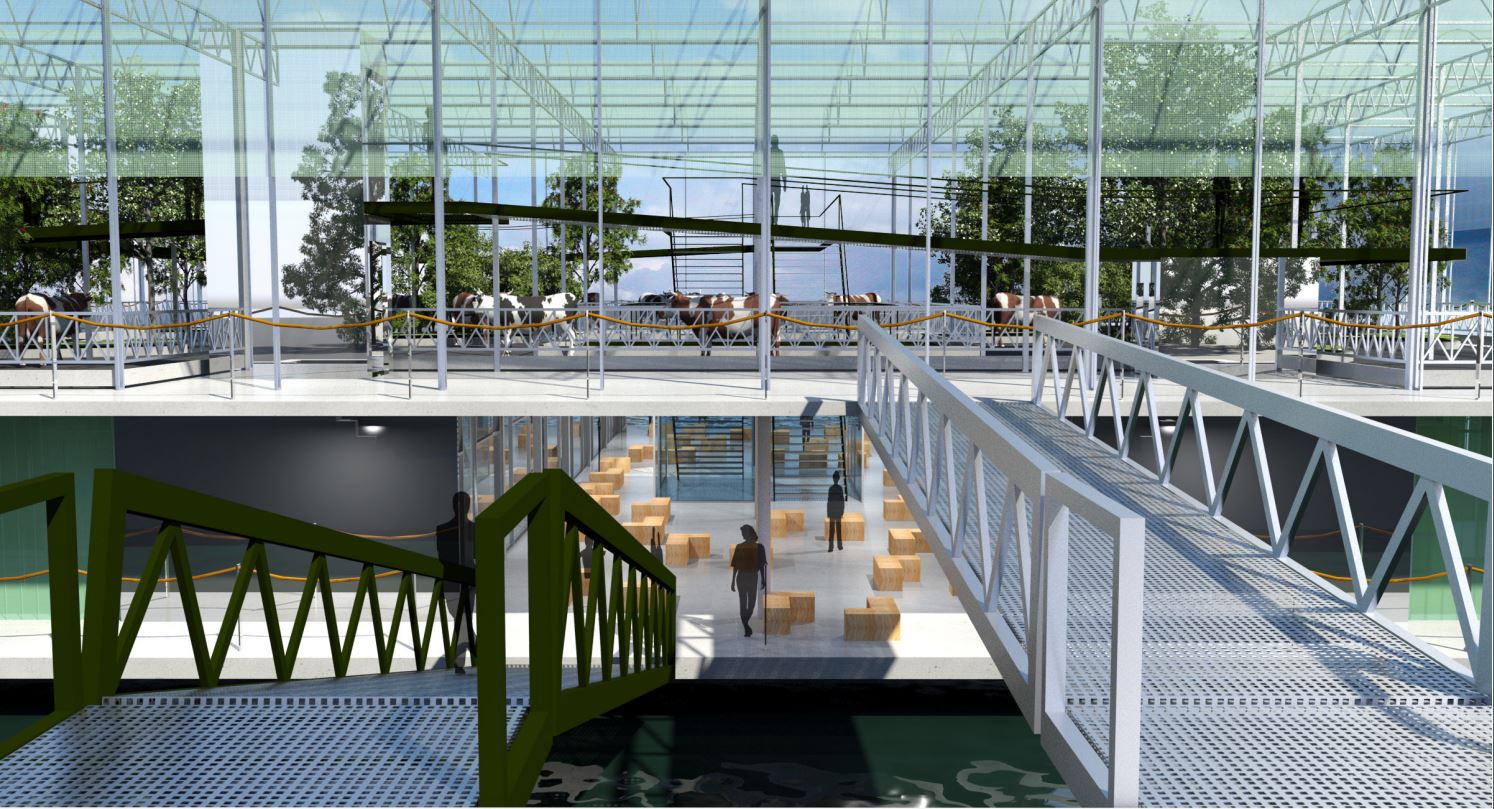
It has become reality: the floating parts that form the basis of the first Floating Farm in the world, have been placed. A. de Jong Group is technology partner of the Floating Farm and therefore responsible for all technical installations and for the processing of urine and manure.
The Floating Farm, located in the Merwe4Haven in Rotterdam, is the first floating, self-sufficient dairy farm in the world and contributes to the development of food in its own city. As the Floating Farm calls it: ‘Urban Transfarming’. A unique way to produce milk and other dairy products in an alternative way. In addition, the floating farm contributes to the education in the field of innovative techniques and urban agriculture. Children, students and other interested parties will be welcome soon to get acquainted with all the processes that take place on the farm.
Albert de Jong, CEO of A. de Jong Group, about the cooperation: ”Peter van Wingerden is the inventor of the Floating Farm, and I have known him for many years. Since last year we participate and contribute to this project that is unique and first of its kind. The intention is to commercialize the Floating Farm concept worldwide and as such bring nutrition closer to the consumer and shorten logistics lines. In the future, next to the floating animal friendly dairy farm, we will also develop floating vegetable- and poultry farms helping to develop circular economies.”
Circularity is a key principle in the design of the Floating Farm. All processes that take place on the Floating Farm are energy- and climate-neutral. They form closed cycles of water supply and drainage, energy generation, waste processing and food for livestock. In addition to the development of all mechanical and electrical installations, A. de Jong Group has helped to define an innovative, circular manure processing system together with other partners.
R&D Manager of A. de Jong Group, Mark Senden, about manure processing: ”In general, manure consists of water (> 90%), organic matter and nutrients such as phosphorus, nitrogen and potassium. The process we have defined together with partners, removes the organic matter and nutrients from the manure and produces pure water, cleaner than the water that currently flows in the Merwe4Haven. It produces a solid fraction with a lot of organic matter with a part of the nutrients that can be used to enrich the soil. In addition, the process produces a liquid fertilizer product in which the rest of the nutrients are concentrated. The clean water is re-used as much as possible at the Floating Farm. Although it is clean enough, regulation does not (yet) allow this water to be used as potable water for the cows. In the future we plan to investigate to what extent the water can be used for the production of hydrogen in an experimental electrolysis cell that will be tested at the Floating Farm. In the manure processing system we apply a screw press, modern filter techniques and membrane separation. In addition to achieve a high degree of separation, the challenge in this design is to make it compact in order to get it technically and economically feasible on a farm scale.”

If you would like to learn more about the Floating Farm, check out the official website. Are you interested in the technology solutions of A. de Jong Group? Please contact Mark Senden via info@dejong.nl.